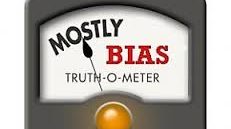Google insists they have processes in place to prevent political bias from influencing their policies. Individual Google employees can’t just demonetize videos, Google tells the public.
Reality paints a different picture: Google tailors its demonetization decisions to keep liberal reporters and activists happy. In fact, in court documents filed on December 29, 2017, Google’s lawyers emphasized that “Decisions about which videos fall into that [demonetization] category are often complicated and may involve difficult, subjective judgment calls.” Indeed.
Internal documents I obtained show the extent to which Google’s public relations team quarterbacks the content-policing process. One email exchange shows a Google spokeswoman making snap decisions—in direct response to media inquiries—about which YouTube videos to demonetize and which channels to scrutinize.
The catalyst was an email from a reporter from The Guardian, a left-leaning British publication, asking about specific videos. The reporter’s inquiry was based in part on complaints from the Southern Poverty Law Center (SPLC), a left-wing smear factory.
Among the videos the SPLC found problematic was one satirizing sex differences. The Google public relations representative forwarded the email to the censorship team and ordered it to review the videos, “making sure they are not monetized.” In other words, censorship decisions are viewed as public relations decisions, not as content decisions.
That’s not how the process is supposed to work—and it is certainly not how Google says the process works. Public relations representatives are supposed to explain the censorship process, not dictate it to please liberal reporters. The exchange also highlights how left-wing interest groups with an egregious track record of dishonesty (like the SPLC) partner with liberal reporters to pressure big tech to censor right-of-center voices.
The fact that Google maintains a pretense of neutrality while cracking down on right-of-center content is particularly dishonest, considering that Google funds, produces, and promotes left-wing propaganda through its “Creators for Change Program.” Google has spent millions of dollars on the program, which gives left-wing YouTubers a boost from the world’s most powerful company.
That includes left-wing writer Amani Al-Khatahtbeh. Google described her as “a rising voice in social, religious, and political issues” and noted that “Amani was invited by Michelle Obama to speak at the inaugural U.S. State of Women Summit.”
What YouTube didn’t mention is that Amani’s past work includes a video claiming the September 11, 2001, Islamist terrorist attacks were “an inside job.” While YouTube was cracking down on right-wing accounts in the name of fighting conspiracy theories, the company was funding a 9/11 “truther.”
Subhi Taha, a YouTube-sponsored “Creator for Change role model,” has similarly promoted anti-Israel boycotts. YouTube and Taha collaborated on a video about Palestinian refugees—who turned out to be family friends of Taha—that promoted an outrageously one-sided narrative about the Israeli-Palestinian conflict.
The video stated as fact that Israel has committed genocide against Palestinians, while leaving out any mention of the actions of Palestinian terrorist groups like Hamas. In fact, to call the video one-sided would be generous. It was genuine anti-Israel propaganda funded, produced, and promoted by YouTube.
In addition to smearing Israel, YouTube spends money promoting open-borders propaganda. The tech giant partnered with Creators for Change “role model” Yasmany Del Real on a video opposing enforcement of U.S. border laws. “I had the opportunity to visit some migrant centers and heard many different stories but with only one goal: to achieve the American dream,” Del Real says in the video.
“Cesar is just one of many who shares the same goal,” he continues, before introducing Cesar: a Guatemalan illegal immigrant with a previous deportation on his record. “I would love for people to have a better sense of compassion towards us immigrants. We truly only want to work and to work hard. Many of us have multiple jobs. We work during the day and evenings,” Cesar says, in Spanish.
“Many of us only want temporary work, without aspiring to stay permanently in the U.S.A.,” Cesar adds, undermining the narrator’s assertion that every border crosser is only interested in pursuing the American dream and contributing to society.
“Cesar is from Guatemala, and this is his second time trying to immigrate to the United States. This time it took him one month to reach the border. Despite the fear and anguish of knowing he could be deported a second time, Cesar remains optimistic,” Del Real explains, as the video cuts to Cesar.
“The United States is a beautiful country, it is a great place to find employment,” Cesar says. In the background, a gospel-style singer croons an open-borders anthem: “Forgive me for trespassing on your lands/That’s not an intention of mine/Family and friends we have left behind/Poverty and destitution are my only crime.”
Maybe you agree with those messages; maybe you don’t. That’s not the point. These are the kind of videos you might expect from a left-wing advocacy group or media outlet. They are not the kind of videos that a politically neutral company produces.
If Google is going to sponsor and produce left-wing content, then they should publicly acknowledge that they’re an ideologically left-wing company that is promoting left-wing narratives. Indeed, that’s what Google is: an ideologically left-leaning company staffed by people who resent the right’s success on its massive video platform and are actively working to counter it.
At the end of the day, Google agrees with leftist activists that their side deserves a built-in advantage on its platform. But that doesn’t stop them from lying about it.
